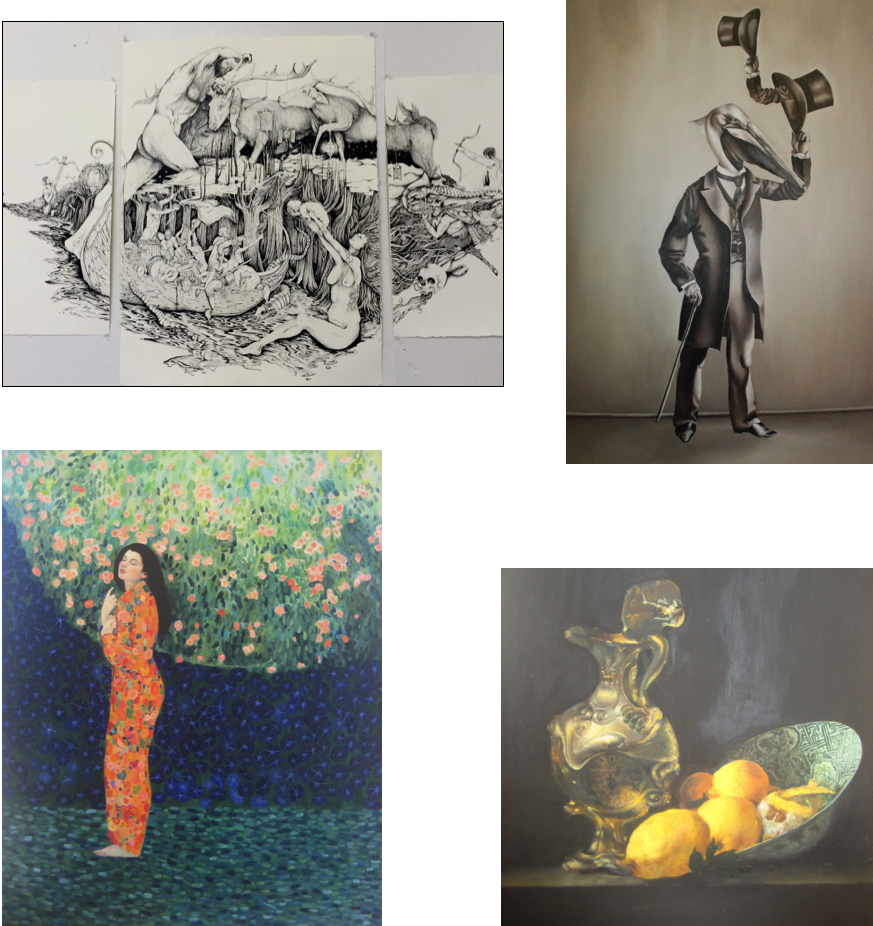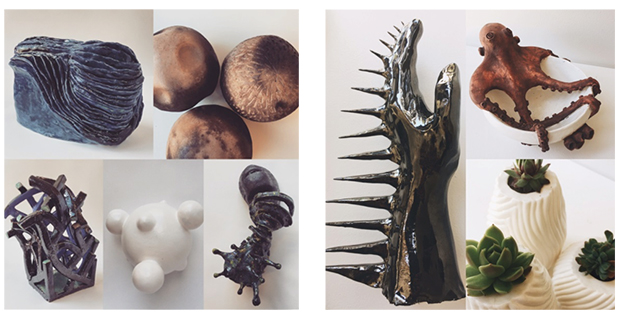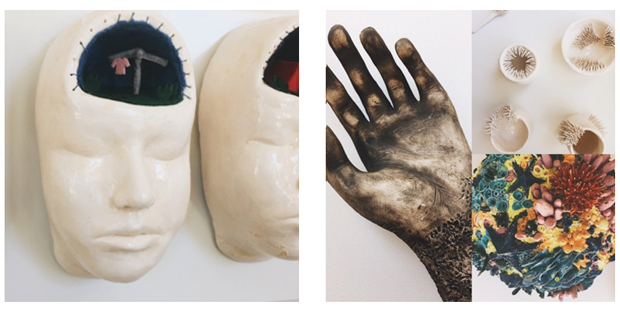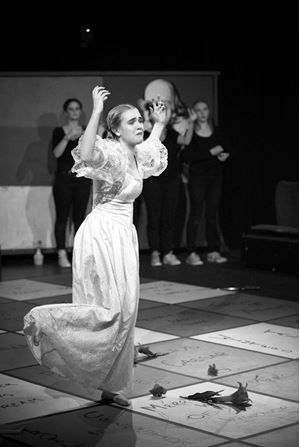DRAMA
“I do not believe in the supremacy of the director, designer, actor or even of the writer. It is through collaboration that this knockabout art of theatre survives and kicks. It was true at the Globe, The Curtain, The Crown, and in the ‘illustrious theatre’ of Moliére and it can work today.” – Joan Littlewood
Drama is the language of humanity and an integral art form. This powerful medium provides a way to explore the world around us through enactment; representing, questioning, critiquing and communicating images and ideas. In broad terms, Narrabundah College’s Drama program involves two key areas: Making and Responding. Students learn as artists by creating Drama works that communicate to audiences. Likewise, they learn as audiences by responding critically to Drama. These actions are taught concurrently, as each depends on the other.
Narrabundah College offers an exciting and innovative Drama program, with students able to study at Tertiary or Accredited levels, as well as undertake the academically rigorous and rewarding International Baccalaureate course. From the introductory Dramatic Explorations unit, to the annual College production, course work is geared towards students discovering a variety of theatrical traditions and performance styles, whilst undertaking theatre research and criticism. Becoming involved in this branch of the Arts is a powerful way to increase confidence and self-esteem, explore collaborative learning and build emotional intelligence and resilience. Such qualities transcend the theatrical context, making a Narrabundah Drama education an exhilarating and practical experience not to be missed.

Narrabundah College’s CAT Award nominated production of The Accused (Hawk Theatre 2016)
Music
The Music department is a vibrant place, where students of diverse musical backgrounds and aspirations meet to explore and pursue their musical goals, with the assistance of highly qualified professional teachers. The department has a two hundred seat Music Auditorium with a beautiful new grand piano, a recording studio, a fully equipped ‘Ableton Lab’ for electronic music students, teaching spaces with computers for each student including Sibelius music notator, and practice rooms.
Our students perform regularly at lunchtime concerts, public performances including the Autumn Concert, the Winter Concert, school assemblies and school formal events. Students are also offered opportunities to perform outside of the school, such as "Yuddah", the big contemporary music gig and a host of other performances within the wider community.
The music courses offered at Narrabundah College are of the highest standard and are catered for the needs of students at different levels of achievement. Students have the opportunities to attend excursions that relate directly to the topics studied, including concerts, lectures, and tutorials at the School of Music. The Music department regularly invites high profile performers and composers to give concerts, lectures or masterclasses at our Music Auditorium.
The Music department has a history of success, and boasts a long list of alumni of leading figures in music making locally and internationally. It does not matter whether you want to pursue music as a career or just for pleasure; Narrabundah College has something for you.
What Courses Are Available?
Students can choose from these packages:
- Tertiary (T)
- Accredited (A)
Tertiary courses are specifically aimed at students who want to pursue their musical studies at university level.
Accredited Music Courses are for students who want to study music mostly for self-enjoyment and do not require music as a part of their tertiary package.
The streams taught at Narrabundah College are:
- Jazz (T or A)
- Electronic (T or A)
- Classical (T or A)
- Contemporary (T or A)
Tertiary Music courses enable students to reach tertiary admittance level. These courses are specifically aimed at students who want to pursue their musical studies at university level.
Accredited Music Courses are for students who want to study music for self-enjoyment and do not require music as a part of their tertiary package.
The Music Scholarships
This scheme was introduced in 1985 to assist students with tuition fees. Students wishing to apply for scholarships must do so in the first two weeks of term 1. Auditions are held in week 4 of term 1 where students must perform two contrasting works of any style on their instrument/s. The awards are presented as part of the Autumn Concert. It is expected that the winner of the scholarship will represent the college at different events throughout their time at Narrabundah College.
Visual Arts (T/A/M)
The Visual Arts course is a broad art program providing opportunity for growth through self-expression in modes of visual media. The emphasis is for the student to learn and develop a wide range of skills that contribute to the effective communication of ideas while exploring diverse media.
Course Pattern
The course may be taken as a Minor, Major, Major/Minor or a Double Major.
“Tell me and I forget. Teach me and I remember. Involve me and I learn.”
-Benjamin Franklin

Creativity in Visual Arts
Students learn about the creative process in Visual Arts by critically and creatively analysing art works, experimenting with creative processes, and developing technical proficiency to express their ideas through various conventions and forms. They examine different approaches to the creative process. Students understand that creativity in the visual arts is the transformation of materials to convey ideas. Students apply their emerging creative process, techniques, and strategies to express their understanding of self and the world.
Communicating Meaning in Visual Arts
Students develop visual literacy by learning about how meaning and concepts are constructed and communicated in a variety of art works. They analyse the forms, conventions, vocabulary, and symbols used by artists to construct meaning and express their ideas. Students explore techniques for communicating their ideas to an audience and develop skills as audience and artist. They apply techniques to communicate their understanding of a range of issues through art works. Student’s express concepts, ideas and meaning through visual communication.
Visual Arts in Context
Students learn about how artists over time and place have represented their concepts and ideas. They explore how artists, curators, critics throughout the world and history have expressed their understanding of self, place, and issues. Students apply their technical knowledge, empathy, ethics, and principles of intercultural understanding to creating art works.
Narratives in Visual Arts
Students learn about the artist as a storyteller. They explore representational and non-representational art works and how these shape narratives. Through analysis of narratives in art works, students gain insights of how perspectives on the world are presented and how that affects reception of and responses to art works and artists. Students apply their theoretical and technical skills to create representational and non-representational art works that convey narratives and responses to narratives.
Independent Study
An Independent Study unit has an important place in senior secondary courses. It is a valuable pedagogical approach that empowers students to make decisions about their own learning. An Independent Study unit can be proposed by an individual student for their own independent study and negotiated with their teacher. The program of learning for an Independent Study unit must meet the unit goals and content descriptions as they appear in the course. Students must have studied at least THREE standard 1.0 units from this course.
Specialised Visual Arts: CERAMICS (T/A/M)
This course offers students the opportunity of learning the major techniques of this medium, enabling them to create objects while developing ideas and styles in ceramics. Emphasis is placed on students’ personal creativity.
Course Pattern
The Specialised Visual Arts Course (Ceramics) may be taken as a Minor, Major, Major/Minor or a Double Major. It can also be combined with standalone units from the Visual Arts Course.
Unit Description
Units are offered as either half-standard (0.5) and/or standard (1.0) units as indicated against each unit.


Entrepreneurship in Visual Arts
Students learn about entrepreneurship and the interface between art and industry. They explore the tensions and opportunities between creative and professional practice. Students apply their understanding of entrepreneurship in the art industry to produce authentic art works for a range of purposes and audiences.
Innovation in Visual Arts
Students learn about innovative art practice and practitioners who break with codes and conventions. They investigate innovations in technique, form, style, creation, digital platforms, and criticism and apply through experimentation and problem-solving. Students synthesise their knowledge, understanding and skills to expand their art practice and engage in ethical and aesthetic issues as artists and audience.
Interdisciplinary Inquiry in Visual Arts
Interdisciplinary inquiry is an approach to studying and addressing complex problems or issues to explore new perspectives and advance critical thinking. Students develop skills in synthesising viewpoints, drawing conclusions, and exploring alternative applications of art practice. Students learn about how Visual Art can be used to learn about and communicate a wide range of concepts often considered the domain of other disciplines. They explore techniques for understanding, representing knowledge and concepts from other disciplines. Students apply Visual Art as a way of knowing the world and sharing their insights.
Curation and Exhibition
Students learn about stylistic and curatorial choices and how that positions audiences to interpret art works and conveys attitudes values and perspectives. They explore the representations of ideas in art as artists and curators through developing an informed response to art works and exhibitions they have seen and experienced. Students apply technical and curatorial skills to create their own works and exhibitions.
Independent Study
An Independent Study unit has an important place in senior secondary courses. It is a valuable pedagogical approach that empowers students to make decisions about their own learning.
An Independent Study unit can be proposed by an individual student for their own independent study and negotiated with their teacher. The program of learning for an Independent Study unit must meet the unit goals and content descriptions as they appear in the course. Students must have studied at least THREE standard 1.0 units from this course.

